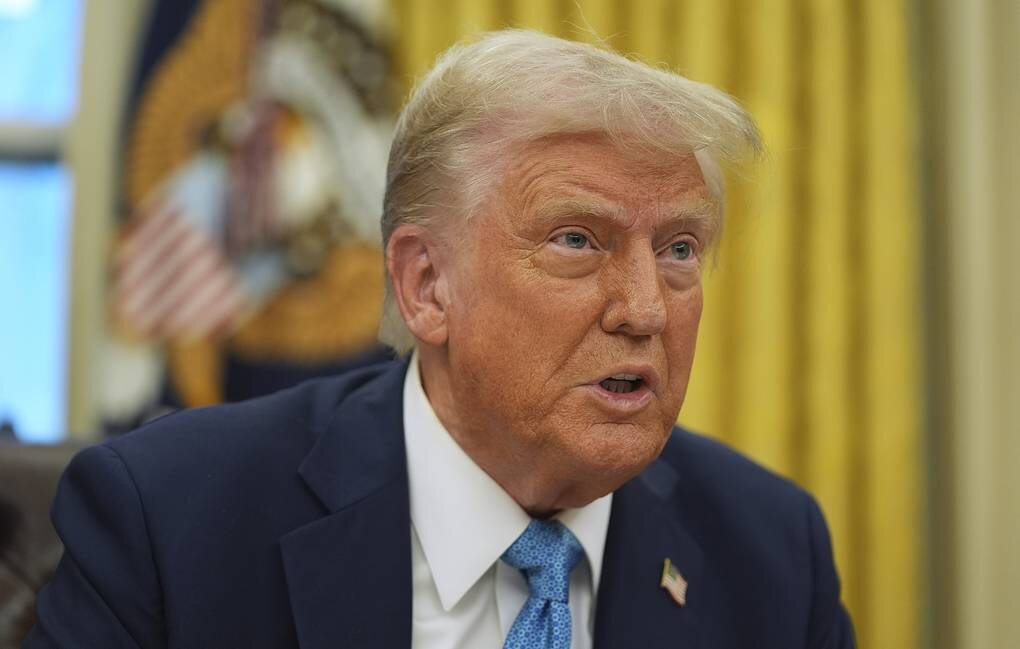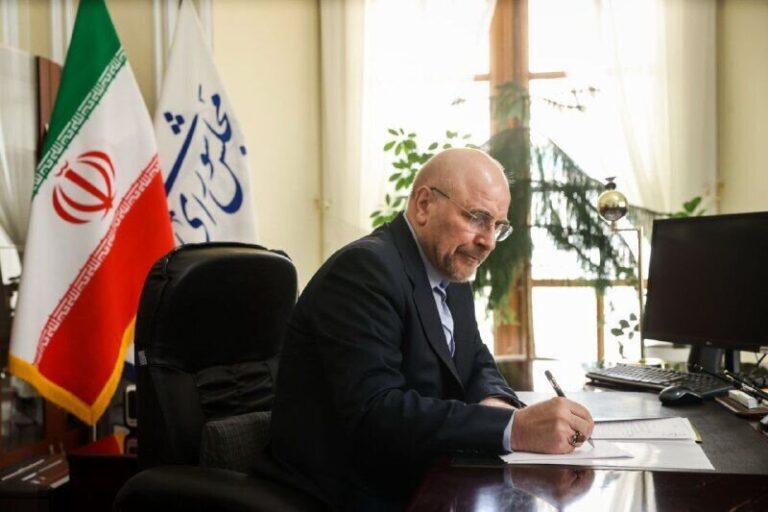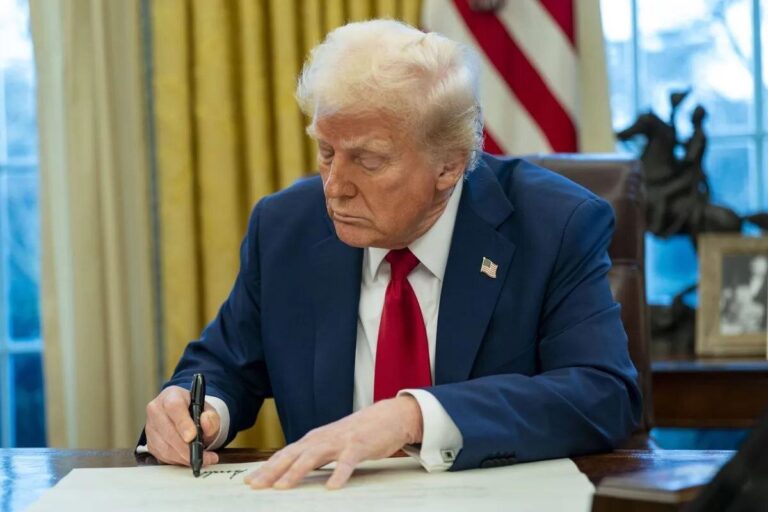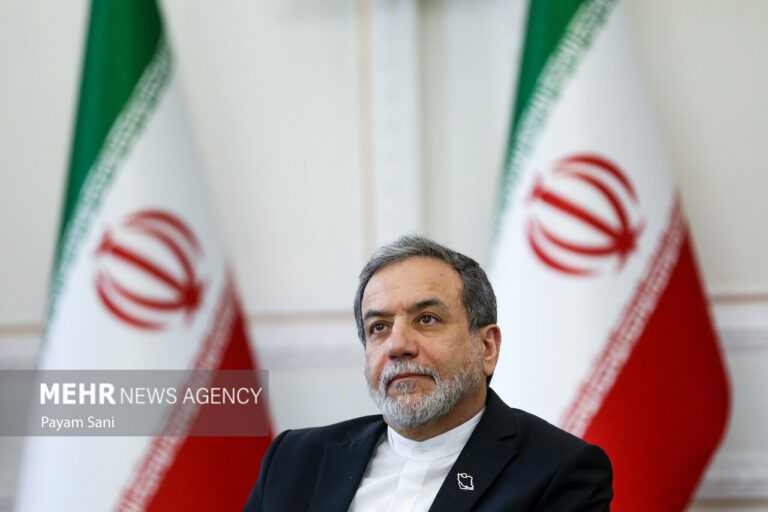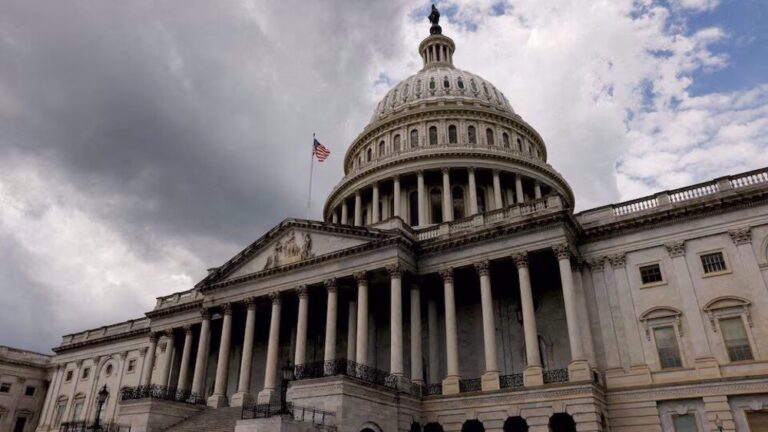Trump Compares Israel’s Land Size to a Pen: A Bold Statement on Geopolitical Perspectives
In a recent news briefing, US President Donald Trump expressed his concerns about the territorial situation in Israel, particularly regarding the annexation of the occupied West Bank. His remarks shed light on the complexities surrounding US-Israel relations and ongoing discussions about peace in the region.
During a conversation with reporters, Trump stated that it’s “not good” for Israel to have such a “small piece of land.” This comment came as he prepared for a significant meeting with Israeli Prime Minister Benjamin Netanyahu to address the ongoing Gaza ceasefire. However, Trump emphasized that he does not have any guarantees that this ceasefire will remain intact.
“I have no guarantees that the peace is going to hold,” Trump reiterated on the eve of his meeting with Netanyahu at the White House. This statement raises questions about the future of peace negotiations and the stability of the region.
In addition to Trump’s concerns, his special Middle East envoy, Steve Witkoff, provided a more optimistic perspective. Witkoff stated, “It’s holding so far, so we’re certainly hopeful,” implying that while challenges exist, there is still room for progress toward peace.
As discussions continue, several key points are worth considering:
- US-Israel Relations: The relationship between the United States and Israel remains a pivotal aspect of Middle Eastern politics.
- Gaza Ceasefire: The ceasefire’s stability is uncertain, with Trump indicating a lack of guarantees.
- Annexation Concerns: Trump’s comments suggest a nuanced stance on Israel’s territorial claims in the West Bank.
- Role of Envoys: The involvement of special envoys like Witkoff highlights the ongoing diplomatic efforts to stabilize the situation.
Trump’s comments about Israel’s land situation reflect a broader dialogue about the implications of territorial rights and the peace process. His statement that it is “not good” for Israel to have a limited land area highlights the ongoing debates around land ownership and sovereignty in the region. This perspective aligns with concerns about the viability of a two-state solution, which has been a long-standing goal for peace negotiations.
The upcoming meeting between Trump and Netanyahu is expected to address these pressing issues in depth. The two leaders have a history of close collaboration, and their discussions are likely to be pivotal in shaping future policies related to the Israeli-Palestinian conflict.
Furthermore, the international community is closely monitoring these developments, as the US has traditionally played a significant role in mediating peace efforts in the Middle East. The outcome of the Trump-Netanyahu meeting could influence not only bilateral relations but also the broader geopolitical landscape in the region.
As the situation evolves, it is essential for observers to stay informed about the implications of these discussions. The potential for renewed conflict or the possibility of peace hinges on the decisions made by leaders like Trump and Netanyahu, as well as the responses from Palestinian representatives and neighboring countries.
In conclusion, the complexities surrounding the Israeli-Palestinian conflict continue to challenge leaders and diplomats alike. With Trump’s recent statements and the forthcoming meetings, the future of peace in the region remains uncertain. The global community eagerly awaits the outcomes of these critical discussions, hoping for a path forward that prioritizes stability and coexistence.
For more updates on the Middle East peace process and US-Israel relations, stay tuned to reliable news sources and follow the developments as they unfold.
